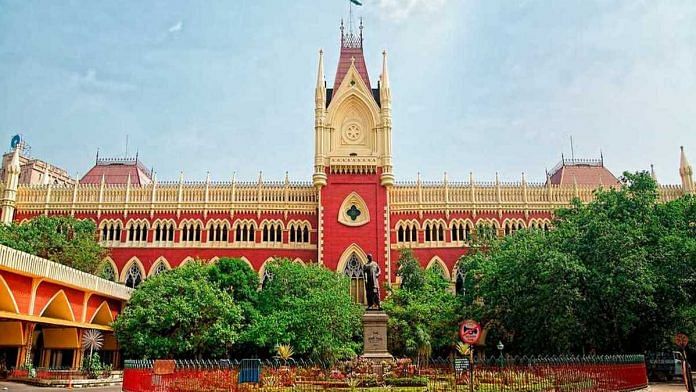New Delhi: The Calcutta High Court has held that in-laws harassing a woman for her ‘black complexion’ amounts to cruelty under Section 498A of the Indian Penal Code (IPC).
The bench, comprising Justices Sahidullah Munshi and Subhasis Dasgupta, Thursday observed: “Causing cruelty to the deceased victim for her black complexion even after her marriage by the in-laws’ members would definitely attract Section 498A/34 IPC against the in-laws’ members, including the accused husband.”
The court made the observation while hearing an appeal, challenging the conviction of a man and his parents for subjecting his 20-year-old wife to cruelty and murdering her subsequently.
They were convicted in March 2006 under sections 498A (husband or his relative subjecting a woman to cruelty), 302 (murder) and 34 (acts done by several people in furtherance of a common intention) of the IPC. The court had sentenced them to life imprisonment that year.
The father-in-law had, however, passed away while the appeal was pending.
The court upheld the husband’s conviction, but acquitted the mother-in-law from murder charges.
This was after the court noted that the mother-in-law was found crying near her daughter-in-law’s body.
“The person committing homicidal death would ordinarily leave the place of occurrence anticipating the consequence. When mother-in-law/accused was found to remain present in her own house, even after the crime was over, and seen crying taking the dead body of her daughter-in-law, such post conduct of accused/mother-in-law is a strong fact requiring due consideration, as focused by the learned advocate for the appellant,” the court observed.
But both the husband and the mother-in-law were held guilty under Section 498A, with the court saying there was “sufficient evidence to show that the victim received oppression, ill- treatment, torture, cruelty in her in-laws’ house by her in-laws’ members for her black complexion”.
Also read: Dropping ‘Fair’ from Fair & Lovely won’t erase Indian racism
Wife was ‘ill-treated, made to stay in cow shed’
The woman and the appellant had tied the knot in October 1997. She was found dead by hanging in her in-laws’ house in June 1998.
According to the judgment, she was subjected to “cruelty, oppression and ill-treatment by her in-laws, including her accused husband, for her black complexion”.
She was also asked to stay in a cow shed just three days after her wedding and was also beaten with a cycle chain, the court order stated.
The judgment said the woman often narrated her ordeal to her parents.
After her death, the husband and his family members were tried for murder and cruelty on a complaint filed by the woman’s father. The autopsy surgeon had also ruled that it was a case of homicidal death, and not suicide, noting that the mark around the deceased’s neck resembled one being made by a telephone or a tape recorder cord.
Among other things, the accused had claimed that the woman was engaged in an affair with someone else before being married. They asserted that since she was married off with the accused against her wish, she died by suicide.
The court, however, did not accept this, in the absence of any evidence to support the submission.
The court also rejected the contention that the woman’s parents would’ve reported it to the police if their daughter was being harassed. The high court said that this was the “ordinary conduct that parents would prefer to persuade their daughter ignoring the torture, and the cruelty for the future benefit of their daughter”.
Also read: Daren Sammy shouldn’t wait for apology from IPL teammates. India is in denial about its racism



